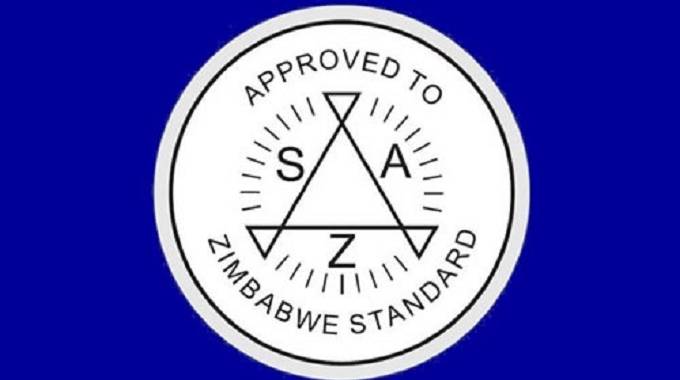40% of Zimbabwean firms not compliant with standards: SAZ

Leonard Ncube in Victoria Falls
ABOUT 40 percent of companies in Zimbabwe are not compliant with the expected standard guidelines that protect consumers from potential risks, the Standards Association of Zimbabwe (SAZ) has revealed.
The standards watchdog has since advised consumers to exercise caution when buying goods and services following the expiry of quality management systems ISO 9001:2008 and occupational safety and health, which lapsed on Friday.
It is now compulsory for businesses to migrate to ISO 9001:2015, which now incorporates risk management to protect consumers from any eventuality and also to ISO 4500 on occupational safety and health. Certification or standard is the best way of doing business while ISO 9001 is there to give confidence and guarantee that a company meets customer expectations. It focuses on what a business must do to please customers.
Speaking on the sidelines of the recent 5th SAZ business conference here on Friday, certification services director Mr Sebastian Zuze said 60 percent of businesses and companies heeded the call after being given a two-year transitional period. He said for every key result area there is a standard. In this case there is ISO 9001:2008, which has been reviewed to incorporate risk management.
“We are saying companies must always think about risks their products pose to business and customers. Companies were given a transition period of two years which lapsed today (Friday) and consumers must know that any industry which still has ISO 9001:2008 and ISO 4100 is not meeting standards as its certification lapsed and can no longer guarantee that such a business can deliver on customer expectations, said Mr Zuze.
He said last month, 60 percent of companies had transitioned to ISO 9001:2015. Certification rate in the country is very low as only 0.14 percent of companies in Zimbabwe are certified. Mr Zuze said this is a cause for concern.
“This shows there is a lot to be done. The moment a standard is no longer valid it means the certification body and company itself can no longer have guarantee that it can satisfy customers. Markets should begin to demand standards and not buy a product that has no standards or deal with a company that is not certified because certification and standards are a way for companies to demonstrate safety of market,” he said.
SAZ has no locus standi to charge defaulters owing to lack of a legal statute. However, Mr Zuze said SAZ was required to name and shame non-compliant companies by the international certification standards.
“If the companies don’t upgrade their certification, the certification body will publish their names. We want to complement efforts that ‘Zimbabwe is open for business’. This is not an exercise to put people in a negative spotlight because we understand the impact this has to the economy but we are required by the international accreditation systems to name such companies. We’ll have to put them on paper and our website to say such companies have lost certification,” he said.
Mr Zuze said the net effect will be loss of market and business confidence. He said products define a lifestyle hence the major danger was that for whatever risks the product or business poses, there is no guarantee that it can be handled while shareholders expectations are also not met. To consumers the negative effect is that they are not protected from risks and are exposed to a negative environment, explained Mr Zuze.
He said companies that are yet to comply should immediately contact SAZ and underscored the need for certification as he encouraged small to medium enterprises and industry captains to use standards to build confidence on the market. SAZ is responsible for verifying development and systems that make sure businesses deliver expected results. — @ncubeleon












Comments